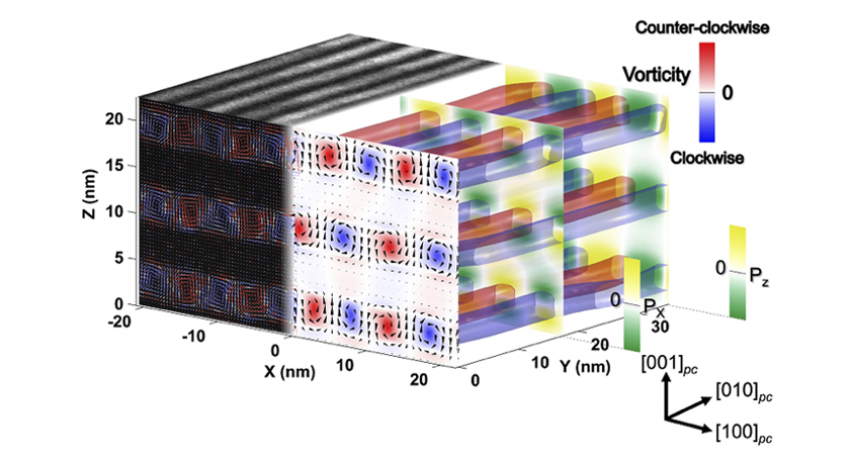K. Yadav, C.T. Nelson, S.L. Hsu, Z. Hong, J.D. Clarkson, C.M. Schlepuetz, A.R. Damodaran, P. Shafer, E. Arenholz, L.R. Dedon, D. Chen, A. Vishwanath, A.M. Minor, L.Q. Chen, J.F. Scott, L.W. Martin, and R. Ramesh, Observation of polar vortices in oxide superlattices. Nature, 2016. 530(7589): p. 198
Long-Qing Chen, Donald W. Hamer Professor of Materials Science and Engineering, professor of engineering science and mechanics, and professor of mathematics at Penn State, has been named a fellow of The Minerals, Metals and Materials Society (TMS), the society's highest honor.
TMS fellows are recognized as leading authorities and contributors to the practice of metallurgy, materials science, and technology, and have been named for outstanding service to society. Chen has made invaluable contributions to computational mesoscale materials science and its applications to solid-solid phase transformations and microstructure evolution.
“TMS annual meetings are where I learned how to get involved in society committees and symposium organization and met many wonderful lifelong friends, as well as a number of mentors who have, in many ways, shaped my professional career,” said Chen. “To receive the TMS fellow award, considered a pinnacle award at TMS, is truly a dream come true.”
Chen has earned worldwide recognition and acclaim for his leadership in computational materials science. He is credited with pioneering the development of phase-field models to explain grain growth, domain evolution, interactions between defect and phase microstructures, and strain-dominated microstructure evolution in cutting-edge elastically inhomogeneous systems. He has published more than 500 papers and delivered more than 300 invited presentations in the area of computational microstructure evolution and multiscale modeling of metallic alloys, oxides and thin films, and energy materials. His theory and computational group collaborates widely with more than 20 premier experimental groups here at Penn State and worldwide.
Chen’s computational work has attracted strong interest and support from industry, including funded projects in the past from Air Products, Ford, General Motors, Alcoa, Pratt-Whitney, Samsung, Knoll Atomic Power Laboratory, and Intel, and national labs, including Los Alamos, Pacific Northwest, Oak Ridge, Sandia, Lawrence Livermore National Lab, and NETL.
Read the full news story here:
http://news.psu.edu/story/448574/2017/02/01/chen-receives-society%E2%80%99s-h...

